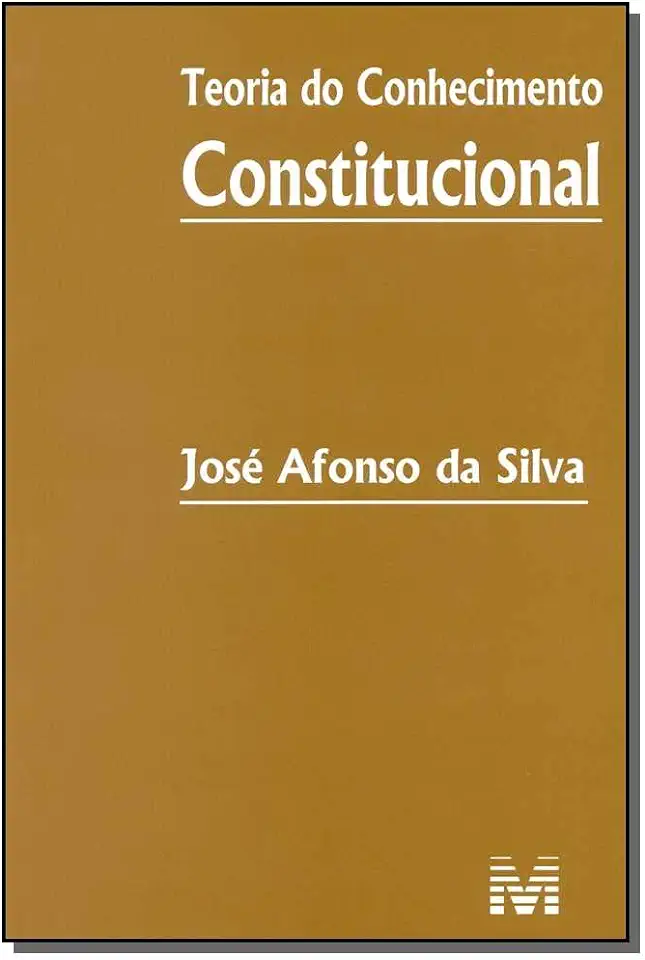
Theory of Constitutional Knowledge - José Afonso da Silva
Theory of Constitutional Knowledge: A Comprehensive Exploration of the Foundations of Constitutional Law
Introduction
In his groundbreaking work, "Theory of Constitutional Knowledge," renowned legal scholar José Afonso da Silva delves into the intricate relationship between knowledge and constitutional law, offering a comprehensive framework for understanding the foundations of constitutionalism. With meticulous research and profound insights, Silva presents a compelling argument for the centrality of knowledge in shaping constitutional principles, institutions, and practices. This book is an essential read for scholars, practitioners, and anyone interested in the theoretical underpinnings of constitutional law.
Knowledge as the Foundation of Constitutionalism
Silva argues that knowledge is not merely a tool for understanding constitutional law but its very foundation. He contends that the creation, interpretation, and application of constitutional norms are all fundamentally rooted in knowledge claims and epistemological assumptions. By examining the role of knowledge in constitutional theory, Silva sheds new light on the nature of constitutionalism and its implications for legal and political systems.
Epistemological Foundations of Constitutional Law
Silva explores the various epistemological foundations that underpin constitutional law, including natural law, positivism, and critical legal studies. He critically analyzes the strengths and weaknesses of each approach, demonstrating how different epistemological frameworks shape constitutional thinking and decision-making. This analysis provides a deeper understanding of the philosophical underpinnings of constitutional law and its impact on legal practice.
The Role of Knowledge in Constitutional Interpretation
Silva dedicates a significant portion of his book to the role of knowledge in constitutional interpretation. He argues that judges and other legal actors rely on various forms of knowledge, including legal texts, precedents, social facts, and policy considerations, when interpreting constitutional provisions. By examining the epistemological foundations of constitutional interpretation, Silva offers a nuanced understanding of how knowledge shapes the meaning and application of constitutional norms.
Knowledge and Constitutional Legitimacy
Silva explores the relationship between knowledge and constitutional legitimacy, arguing that the legitimacy of constitutional norms and institutions is contingent upon their epistemic foundations. He contends that constitutional legitimacy requires a shared understanding of the knowledge claims and epistemological assumptions that underpin constitutional law. This analysis provides a fresh perspective on the sources of constitutional authority and the challenges to legitimacy in contemporary constitutional systems.
Knowledge and Constitutional Change
Silva concludes his book by examining the role of knowledge in constitutional change. He argues that constitutional change is driven by shifts in knowledge and epistemological assumptions, which can lead to the transformation of constitutional norms and institutions. By analyzing the epistemological dimensions of constitutional change, Silva offers insights into the dynamics of constitutional development and the potential for future constitutional transformations.
Conclusion
"Theory of Constitutional Knowledge" is a tour de force in constitutional theory, offering a comprehensive and thought-provoking exploration of the relationship between knowledge and constitutional law. José Afonso da Silva's masterful analysis provides a deeper understanding of the foundations of constitutionalism, the role of knowledge in constitutional interpretation and legitimacy, and the epistemological dimensions of constitutional change. This book is a must-read for anyone seeking to understand the theoretical underpinnings of constitutional law and its implications for legal and political systems.
Enjoyed the summary? Discover all the details and take your reading to the next level — [click here to view the book on Amazon!]